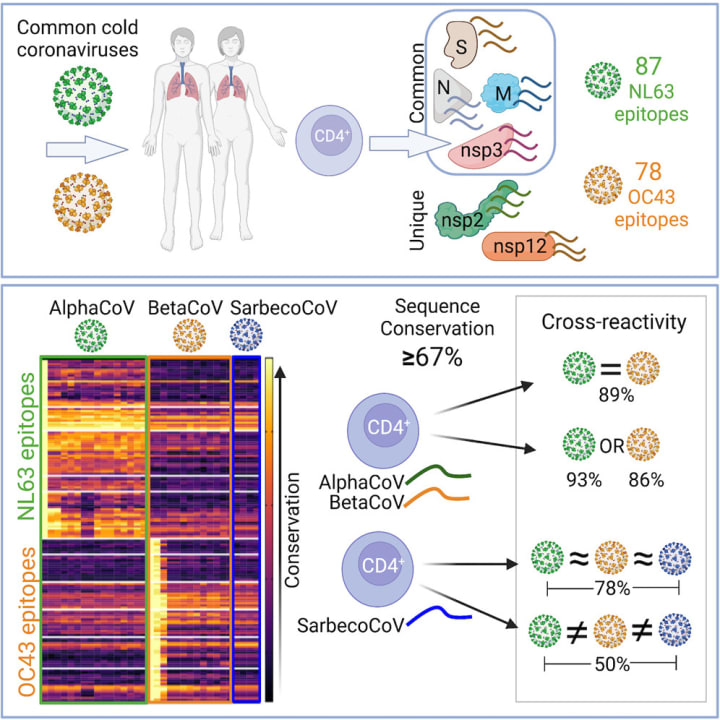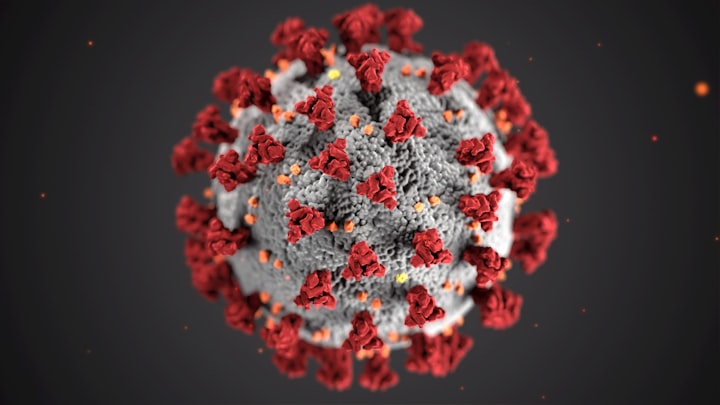Family Resemblance: How T Cells Could Fight Many Coronaviruses at Once
Unlocking the Potential of T Cells: A Promising Path towards Broad-Spectrum Coronavirus Protection
Introduction
The COVID-19 pandemic caught the world by surprise, emphasizing the need for effective strategies against different viral families. Scientists at the La Jolla Institute for Immunology (LJI) are at the forefront of investigating how the immune system's T cells respond to various coronaviruses, ranging from SARS to common cold coronaviruses. Their goal is to develop vaccines that can combat multiple types of coronaviruses simultaneously, providing a powerful defense against future pandemics.
Understanding T Cells and Antigens

T cells play a crucial role in our immune system, recognizing specific viral targets known as antigens. These antigens consist of fragments called epitopes, which can be shared across different coronaviruses. LJI researchers, led by Professor Alessandro Sette and Dr. Alba Grifoni, have examined these epitopes in detail, exploring their recognition patterns and conservation across various coronaviruses.
Harnessing Cross Reactivity
Memory CD4+ "helper" T cells act as sentinels, scanning the body for protein sequences associated with past viral infections. These T cells help initiate the immune system's response when encountering similar pathogens, even if they belong to different viral families. This phenomenon, known as cross reactivity, is precisely what scientists aim to leverage to train immune cells to combat multiple types of coronaviruses simultaneously.
Identifying Viral Protein Sequences
Prior to the COVID-19 pandemic, researchers collected T cells from patients who had not been exposed to SARS-CoV-2 but had encountered common cold coronaviruses belonging to either the alpha or beta groups. Through comprehensive analysis, the team determined which viral antigens and epitopes were recognized by these T cells. Additionally, computational approaches were employed to predict shared epitopes between different coronaviruses, including SARS-CoV-2.
The Potential of Combined Approaches

The LJI researchers found that T cells recognizing alpha or beta common cold coronaviruses exhibited cross reactivity across both groups, with 89% of tests showing shared epitope recognition. Although cross reactivity declined to 50% when encountering SARS-CoV-2, the virus still shared protein sequences with other members of its family. This discovery suggests the possibility of developing vaccines that focus immune responses on these shared sequences, allowing recognition of multiple viruses simultaneously.
By combining antibody targeting and T cell responses against conserved epitope sequences, future coronavirus vaccines could be designed to provide broader protection against different types of coronaviruses. This combined approach would be particularly effective, as T cells can recognize antigens conserved across various coronaviruses, complementing the major antibody target, the SARS-CoV-2 spike protein. Furthermore, the implications of this work extend beyond coronaviruses, suggesting viable strategies for combating other viral families that pose future pandemic risks.
Future Implications and Exciting Prospects
The significance of this research lies not only in its potential to combat coronaviruses but also in its application to other families of viruses. Influenza, hemorrhagic fevers, and viruses like dengue and Zika could benefit from a similar approach, leveraging shared epitopes to induce cross-reactive immune responses. The broad activity of T cells across different viral families opens up new possibilities for vaccine development and pandemic prevention strategies.
Conclusion
The groundbreaking research conducted by scientists at LJI highlights the importance of understanding T cell responses to combat a wide range of coronaviruses. By uncovering conserved epitopes and harnessing the power of cross-reactivity, the development of vaccines with broad-spectrum protection becomes a promising avenue. The findings from this study pave the way for future advancements in vaccine design, offering hope for a world better equipped to handle future pandemics.
FAQs
1. Can T cells recognize multiple coronaviruses at once?
- Yes, T cells can recognize multiple coronaviruses due to cross reactivity, especially when the viruses share common protein sequences.
2. How does cross-reactivity contribute to vaccine development?
- Cross-reactivity allows immune cells to target similar pathogens, even if they belong to different viral families. By leveraging this phenomenon, vaccines can be designed to induce broad-spectrum protection.
3. What are conserved epitopes?
- Conserved epitopes are fragments of viral antigens that remain similar across different coronaviruses. These epitopes can be recognized by T cells, enabling cross-reactive immune responses.
4. What are the similarities between alpha and beta coronaviruses?
- Alpha and beta coronaviruses share certain epitope sequences, leading to cross reactivity among T cells. This shared recognition highlights the commonality between these two groups.
5. What other viral families can benefit from this research?
- This research provides insights into combating other viral families such as influenza, hemorrhagic fevers, and viruses causing diseases like dengue and Zika. The strategies employed can be applied to develop vaccines for these families as well.
References:
(Medical Express - https://medicalxpress.com/news/2023-06-family-resemblance-cells-coronaviruses.html)
About the Creator
satish Kumar
Content Strategist, YouTuber, Website Developer & SEO Analyst: Dedicated to Constant Skill Growth







Comments
There are no comments for this story
Be the first to respond and start the conversation.